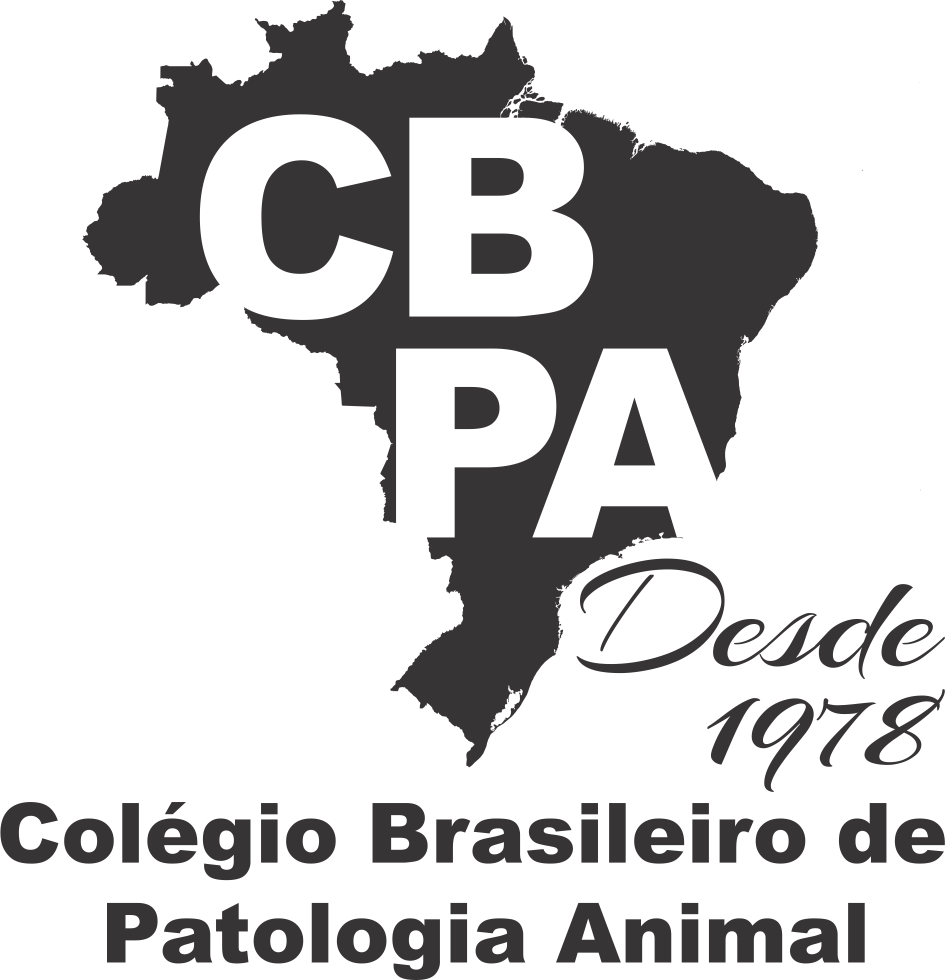Resultado da pesquisa (2)
Termo utilizado na pesquisa Cantón G.J.
#1 - Current trends in bovine abortion in Argentina
Abstract in English:
Bovine abortion is an important cause of significant economic losses in beef and dairy herds. This syndrome is usually difficult to diagnose. The aim of this study was to characterize bovine abortion causes in Argentina by standard diagnosis procedures (histology, bacterial and viral isolation) and other diagnostic tests like direct fluorescent antibody test (DFAT), fetal serology, immunohistochemistry (IHC), and PCR, showing their specific advantages and limitations. Necropsies were performed in 150 aborted bovine fetuses submitted to the diagnostic laboratories of Instituto Nacional de Tecnología Agropecuaria (INTA) Balcarce, Argentina. Etiological diagnosis was confirmed in 78 fetuses (52% of the cases). Most causes of abortion were of infectious origin, being Neospora caninum (14.67%), Campylobacter fetus sp. (9.33%), Leptospira spp. (7.33%) and Brucella abortus (6.65%) the main microorganisms identified. Bovine viral diarrhea virus (BVDV) and bovine herpes virus (BHV) were diagnosed in 2 (1.33%) and 3 (2%) cases, respectively. This study showed a better characterization of bovine abortion compared with previous researches done on this topic.
Abstract in Portuguese:
O aborto bovino é uma causa importante de perdas econômicas significativas em rebanhos bovinos e leiteiros. Esta síndrome é geralmente difícil de diagnosticar. O objetivo deste estudo foi caracterizar o aborto bovino na Argentina por procedimentos diagnósticos de rotina (histologia, isolamento viral e bacteriana) e outros testes diagnósticos como ensaio directo de anticorpos fluorescentes (DFAT), sorologia fetal, imuno-histoquica (IHC), e PCR; mostrando suas vantagens e limitações específicas. As necropsias foram realizadas em 150 fetos bovinos abortados submetidos aos laboratórios de diagnóstico do Instituto Nacional de Tecnologia Agropecuária (INTA) de Balcarce, na Argentina. O diagnóstico etiológico foi confirmado em 78 fetos (52% dos casos). A maioria das causas de aborto foram de origem infecciosa, sendo Neospora caninum (14,67%), Campylobacter fetus sp. (9,33%), Leptospira spp. (7,33%) e Brucella abortus (6,65%) os principais microrganismos identificados. O vírus da diarréia viral bovina (BVDV) e o herpesvírus bovino (BHV) foram diagnosticados em 2 (1,33%) e 3 (2%) casos, respectivamente. Este estudo mostrou uma melhor caracterização do aborto bovino em comparação com pesquisas anteriores feita sobre este tema.
#2 - Retrospective analysis of cattle poisoning in Argentina (2000-2013), 37(3):210-214
Abstract in English:
ABSTRACT.- García J.A., Cantón G.J., García B.L., Micheloud J.F., Campero C.M., Späth E.J.A. & Odriozola E.R. 2017. Retrospective analysis of cattle poisoning in Argentina (2000-2013). Pesquisa Veterinária Brasileira 37(3):210-214. Estación Experimental Agropecuaria Balcarce (EEA), Instituto Nacional de Tecnología Agropecuaria (INTA), Ruta Nacional 226 Km 73,5, (7620) Balcarce, Buenos Aires, Argentina. E-mail: garciajuanagustin@hotmail.com
A retrospective analysis (2000 to 2013) of cattle poisoning caused by toxic plants and other compounds was carried out in the Pampas region of Argentina by the Animal Health Group of INTA-EEA, Balcarce. During this period, 1263 reports of diseases of different etiologies (infectious, parasitic, toxic, metabolic and miscellaneous) were recorded in cattle, by collecting anamnestic, clinical and pathological information. A toxic etiology was diagnosed in 21.1% of these reports. Iatrogenic poisoning caused by ionophores was the most frequently recorded etiology. Consumption of toxic plants (Wedelia glauca, Solanum glaucophyllum, among others), mycotoxins (Claviceps purpurea, Claviceps paspali, Epichloë coenophiala, among others), and plants producing cyanide and nitrates/nitrites were also commonly diagnosed. The high frequency of toxic episodes and the difficulties in their diagnosis by practitioners in our livestock production systems emphasizes the importance of this report.
Abstract in Portuguese:
ABSTRACT.- García J.A., Cantón G.J., García B.L., Micheloud J.F., Campero C.M., Späth E.J.A. & Odriozola E.R. 2017. Retrospective analysis of cattle poisoning in Argentina (2000-2013). Pesquisa Veterinária Brasileira 37(3):210-214. Estación Experimental Agropecuaria Balcarce (EEA), Instituto Nacional de Tecnología Agropecuaria (INTA), Ruta Nacional 226 Km 73,5, (7620) Balcarce, Buenos Aires, Argentina. E-mail: garciajuanagustin@hotmail.com
A retrospective analysis (2000 to 2013) of cattle poisoning caused by toxic plants and other compounds was carried out in the Pampas region of Argentina by the Animal Health Group of INTA-EEA, Balcarce. During this period, 1263 reports of diseases of different etiologies (infectious, parasitic, toxic, metabolic and miscellaneous) were recorded in cattle, by collecting anamnestic, clinical and pathological information. A toxic etiology was diagnosed in 21.1% of these reports. Iatrogenic poisoning caused by ionophores was the most frequently recorded etiology. Consumption of toxic plants (Wedelia glauca, Solanum glaucophyllum, among others), mycotoxins (Claviceps purpurea, Claviceps paspali, Epichloë coenophiala, among others), and plants producing cyanide and nitrates/nitrites were also commonly diagnosed. The high frequency of toxic episodes and the difficulties in their diagnosis by practitioners in our livestock production systems emphasizes the importance of this report.









